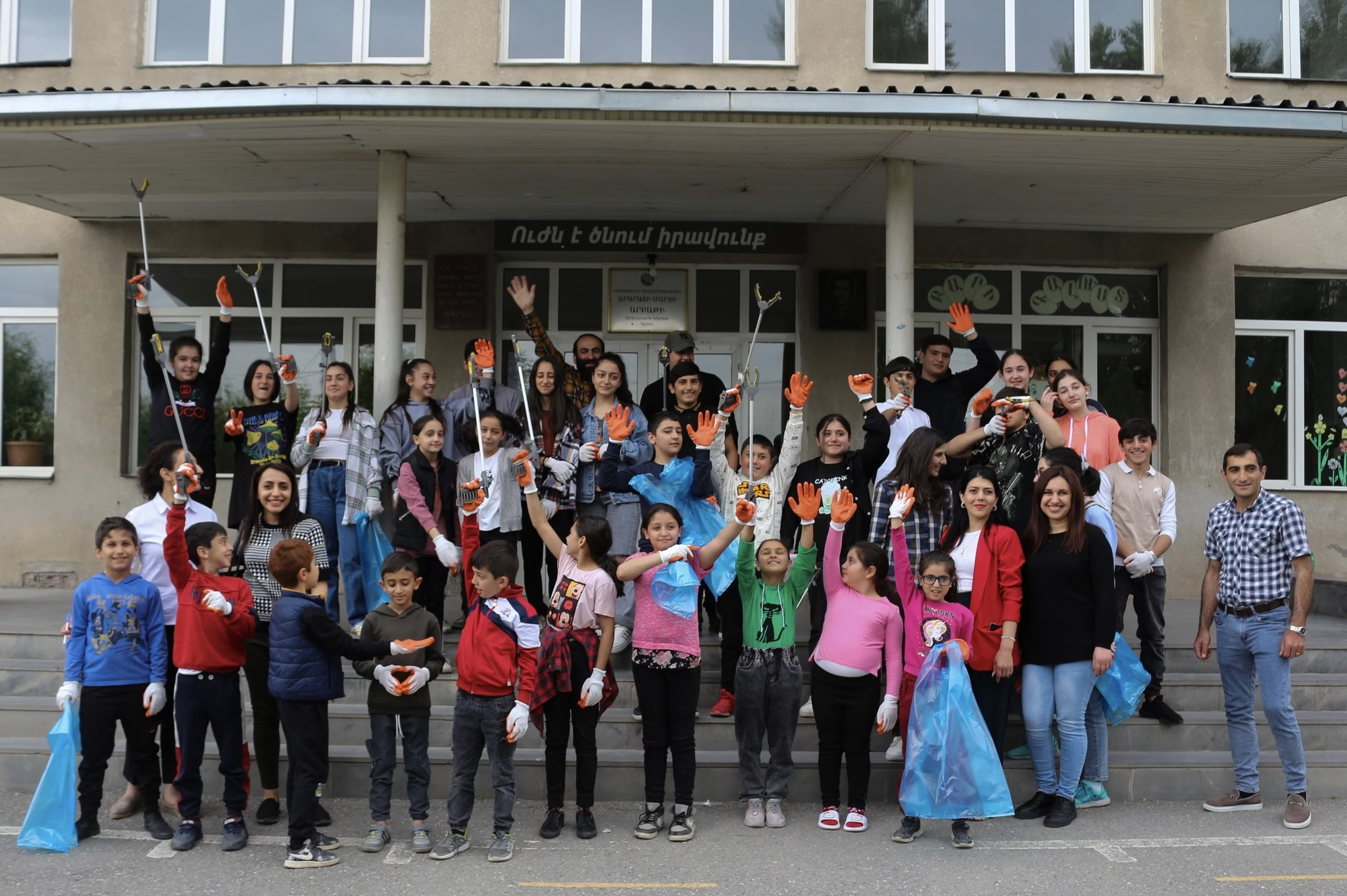

Period: August 2022 – May 2023
Geography: 26 villages and Masis city, Ararat region, Armenia
Co-creators of development: 54 local people
Sub-awards Direct Recipients: 1500
Indirect Recipients: 4500+
In 2021, the Masis community, Ararat region, underwent a major transformation. Through a government-led consolidation, 26 villages and Masis City were unified into one administrative unit, home to over 92,623 people. While the map had changed, real connections between these diverse populations had yet to form to unlock the potential that now existed under one umbrella.
In 2022, ArmeniaCorps launched an initiative designed to bridge this gap—one that would promote collective action, foster local leadership, and strengthen social cohesion across the newly formed Masis community.
Over the course of 2022–2023, ArmeniaCorps identified, mobilized, and built the capacities of 54 individuals from across the 26 villages—schoolchildren, university students, teachers, librarians, community workers, and village leaders.
The program built and improved the capacities of these individuals by utilizing Asset-based Community Development (ABCD) and participatory community development mechanisms.
Simultaneously to the workshops, participants were engaged in practically applying their newly acquired knowledge, designing grassroots initiatives, and collaboratively implementing projects that met local needs.
Every project was led, managed, and executed by the community members themselves. Each implemented project was heavily focused on identifying, mobilizing, and utilizing local resources, including human, physical, financial, cultural, spiritual, and natural assets to solve shared challenges, proving that sustainable change begins from within. Most of the programmatic purchases relied on the services of local vendors to support the local economy.
What began as a fragmented region emerged as a more connected and capable community—one that contributes to Armenia’s progress toward the Sustainable Development Goals, such as Sustainable Cities and Communities, Quality Education, No Poverty, Decent Work and Economic Growth, Gender Equality, Reduced Inequalities, Responsible Consumption and Production, and Climate Action Goals.
Impact:
Through ABCD and participatory community development mechanisms, ArmeniaCorps enabled the local population to drive locally-led development across 18 rural communities. The results include
Partners: Masis city municipality; village administrations of Arbat, Arevabuyr, Argavand, Azatashen, Darakert, Geghanist, Getapnya, Ghukasavan, Khachpar, Hayanist, Hovtashat, Marmarashen, Norabats, Ranchpar, Sis, and Sipanik; elementary schools at Arbat, Arevabuyr, Azatashen, Hayanist, Hovtashat, Marmarashen, Norabats, and Nizami villages; kindergarten at Hovtashat village; libraries at Norabats and Ghukasavan villages; music school after Arno Babajanyan in Masis city; and Innovation and Technologies school in Ghukasavan village.
Funding Sources: USG Alumni Outreach Grants Program; Cultural Vistas Muskie Alumni Small Grants Program.
Sustainability:
Media Coverage: